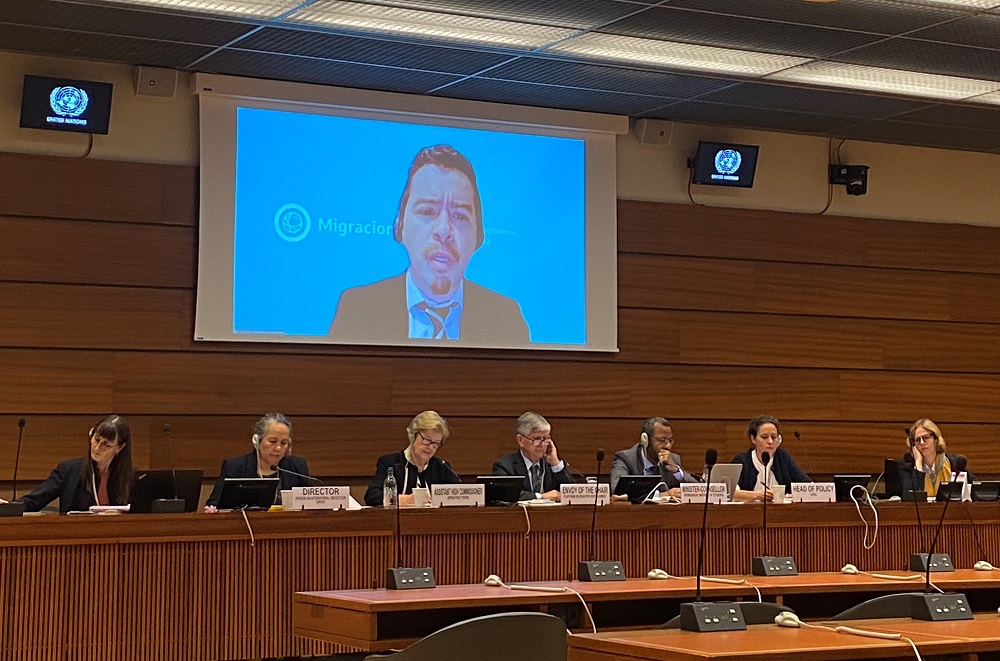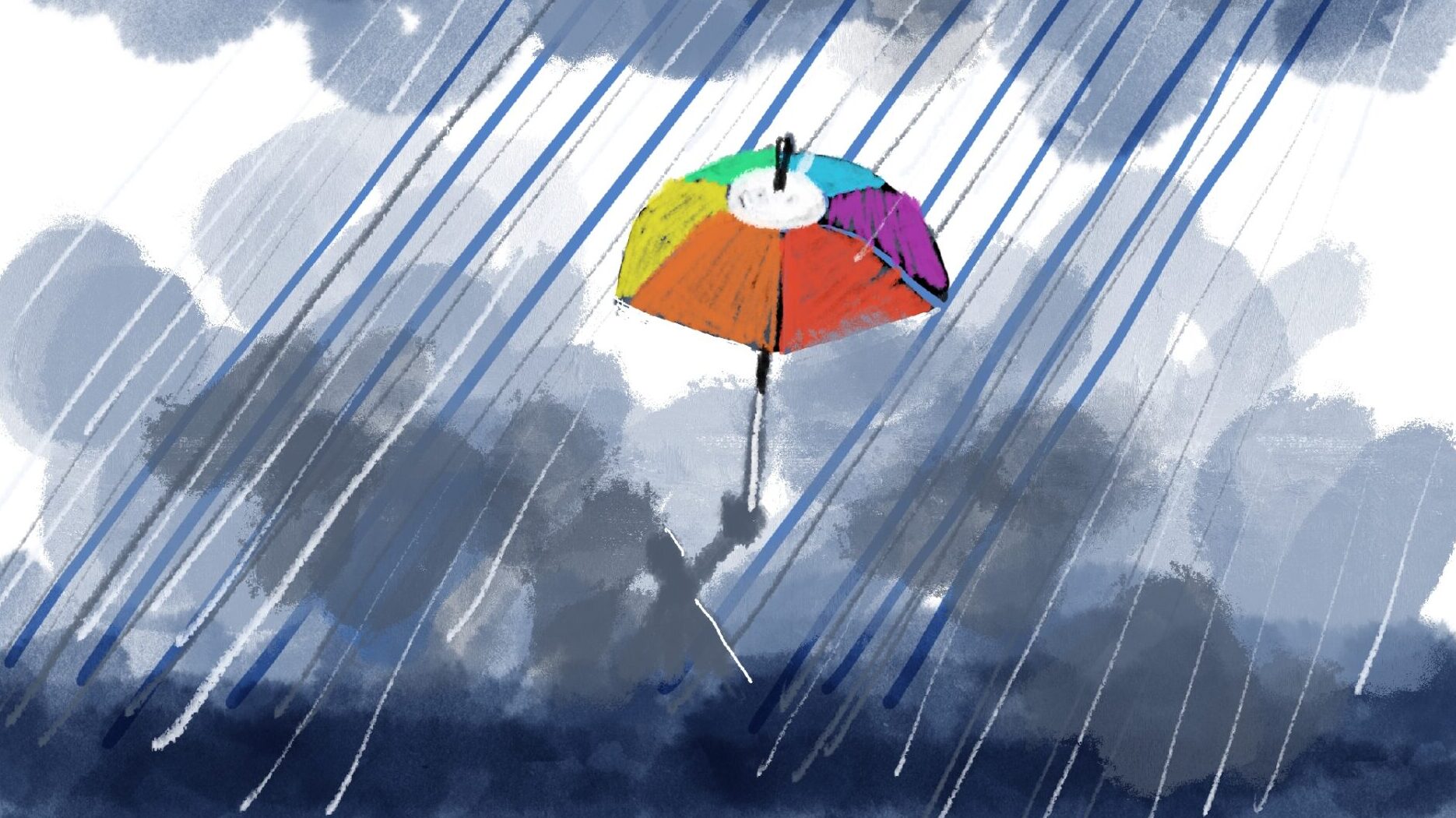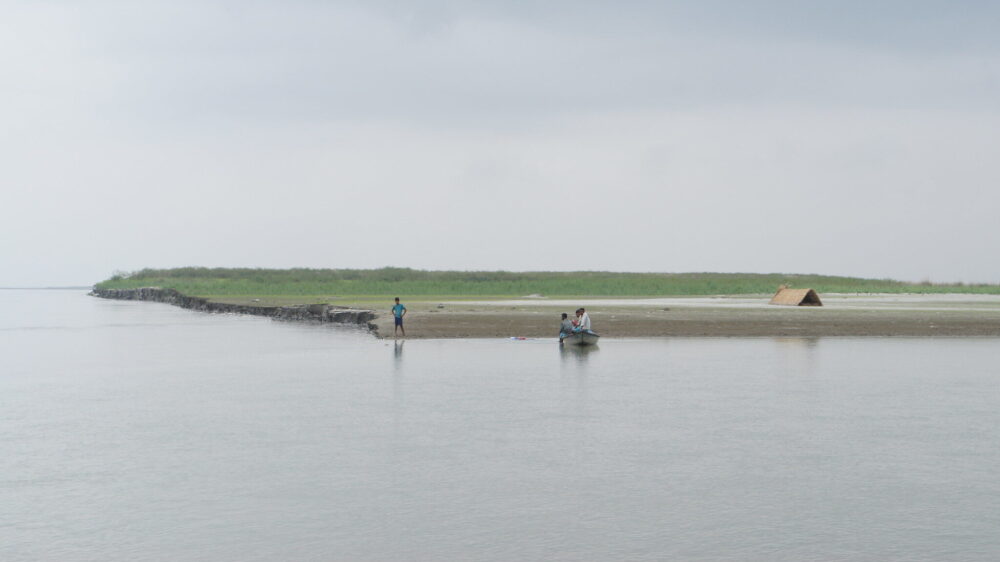Protecting People Displaced Across Borders in the Context of Climate Change Impacts and Disasters

In the margins of the 74th session of the Executive Committee of the High Commissioner’s Programme (ExCom), on 12 October 2023, UNHCR co-organized a side event with the Platform on Disaster Displacement (PDD) on the protection of people displaced across borders in the context of climate change impacts and disasters. The panel discussion focused on the applicability of existing instruments to provide international protection for those in need, as articulated in UNHCR’s legal considerations regarding claims for international protection made in the context of the adverse effects of climate change and disasters (2020), as well as sharing examples of State practices in this area.
Moderated by the Envoy of the Chair of the Platform on Disaster Displacement, Walter Kälin, the side event enabled members of UNHCR’s Executive Committee to hear from high- level experts and country representatives on how they are addressing the protection needs of people displaced across borders in the context of climate change impacts. The event advocated for the effective application of international refugee and human rights law to protect people displaced across borders in need of international protection and provided concrete examples on how to address complex displacement situations through innovative approaches.
UNHCR’s Assistant High Commissioner for Protection, Gillian Triggs recalled the High Commissioner’s opening remarks at ExCom, stating that:
Climate action must… be seen through a human rights and legal perspective. In this context, UNHCR’s expertise and its mandate for refugee protection are useful. We are providing technical and legal advice and guidance to States to ensure that international protection norms are upheld in situations of climate-related displacement.”
She observed how situations involving climate change, displacement, governance issues, poverty, and inequalities interact and generate protection risks . This complexity should not prevent action, but should stimulate reflection, innovative thinking, and dialogue with partners and across sectors, in a spirit of cooperation.
Elizabeth Tan, Director of Division of International Protection, UNHCR explained UNHCR’s mandate, role, and relevance in the context of climate change and disasters, and outlined the categories of people in need of international protection as reflected in UNHCR’s legal considerations (2020), under the 1951 Convention, and regional instruments such as the OAU Convention and 1984 Cartagena Declaration – notably when climate change and disasters lead to events seriously disturbing public order. She added that principles of non-refoulement may be a basis for international protection in exceptional circumstances. Ms. Tan emphasized that practices in jurisprudence can help to clarify the application of existing instruments for judges and lawyers. More research is needed to enhance our understanding of these instruments in the context of people fleeing the impacts of climate change and disasters.
Andrés Perez Esquivel, Director of International Affairs, National Directorate of Migration, Ministry of Interior, Republic of Argentina highlighted that in the Americas more than two million people are displaced every year by extreme weather events. He provided a comprehensive overview of Argentina’s innovative humanitarian visa program launched in May 2022 in cooperation with 23 other countries in Latin America. This program not only aims at addressing disaster displacement, but also at providing durable solutions for people displaced across borders in the context of disasters in the region. Argentina is seeking to enhance dialogue, cooperation, and sponsorship of the program in collaboration with UNHCR, IOM and PDD. Argentina has since launched a policy for humanitarian protection, planned relocation and durable solutions.
Daniel Tenkir Arga, Minister Counsellor, Permanent Mission of Ethiopia noted that his country hosts over one million refugees, and that climate change is a reality for Africa with droughts affecting refugee hosting areas that are particularly vulnerable to climate impacts in Ethiopia. He announced that the Ethiopian Government is adopting a long-term approach considering the impacts of climate change on refugees and hosting communities. In his remarks, Mr. Tenkir Arga also highlighted that the depletion of natural resources can lead to conflict and gender-based violence in refugee hosting areas, and therefore it is imperative to find alternative sources of energy to firewood and to implement measures to restore forest and ecosystems to address this challenge, such as Ethiopia’s Green Legacy initiative to plant 32 billion trees.
Catherine-Lune Grayson, Head of Policy, ICRC shed light on the complex interactions between conflict, climate change and displacement. She highlighted that the countries that are most vulnerable to climate change are the ones least ready to adapt – and 60% of them are in a situation of conflict. People are often first displaced by conflict and then by disasters. Ms Grayson stressed that this requires a holistic approach of looking at the converging risks of armed conflict and climate change together rather than in isolation. We must preserve people’s ability to move, but also create conditions for them to stay in place if they wish to, and once they are displaced to better protect them. There is a need to rethink how we work together to implement more effective and harmonized responses – with States supported by development and humanitarian actors, communities, and local knowledge.
Building on this ExCom side event, UNHCR calls for the full operationalization of the Global Compact on Refugees to protect the growing number of people displaced across borders in the context of climate change and disasters and encourages all to pledge on climate action at the Global Refugee Forum (GRF) 13-15 December 2023. COP28 falls just before the GRF this year providing an important opportunity to work together to raise ambitions for enhanced protection strategies and durable solutions for people displaced across borders in the context of climate change impacts and disasters, more mitigation, scaled up financing and support for adaptation, and to address loss and damage for vulnerable displaced people and their hosting communities – including those living in fragile and conflict affected contexts.
Useful Links and Documents
Download the Event Flyer
Learn More about the 2023 Executive Committee Session




